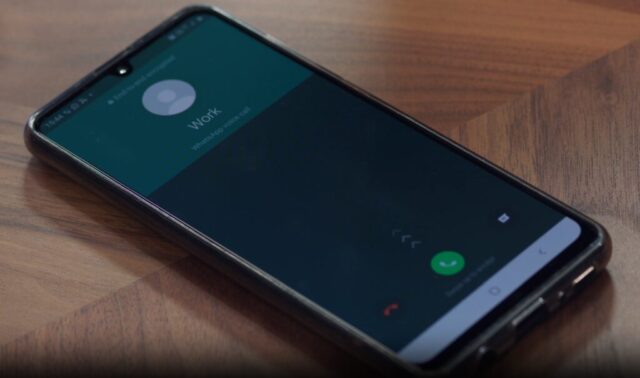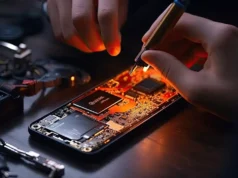
For today’s connected world, social media has become more than just a place for fun and entertainment; it’s now vital for networking, business, and daily communication. The rise of these platforms has also led to an increase in users sharing their personal details, sometimes without fully understanding the risks.
One such piece of data is the phone number. While it might seem harmless to share these numbers, thinking it’s just a way to keep in touch, the risks of doing so can be surprising and concerning.
A Historical Glimpse: The Evolution of Phone Numbers as Personal Tags
Decades ago, before everyone was sending texts or using social apps, the phone number was created simply for voice calls. Its initial purpose was straightforward – to connect people across distances. But with time, and as technology and our society changed, the phone number’s role did too. It’s no longer just about making calls.
Today, it acts as a personal tag. Whether we’re joining a new store’s reward program or confirming a bank payment, our phone numbers are deeply linked with who we are. And as we’ve moved more of our lives online, these numbers have gained importance in online verifications. This shift means they’re valuable not just for friends and family wanting to connect, but also for those with harmful motives.
The Hidden World of Data Trading: The Value of Your Phone Number
In the lesser-known corners of the online world, there’s a bustling marketplace where personal data is the prime commodity. It might sound surprising, but trading in personal information is big business. Among the array of personal details, phone numbers are especially sought-after. Why is this the case? For those with bad intentions, whether cybercriminals or aggressive advertisers, a phone number is a ticket to much more.
Having just one phone number can lead them to discover much about a person’s online activities. Think about how many online platforms use your number for resetting passwords. Think about the numerous apps that ask to access your phone contacts. Suddenly, a number isn’t just a contact point; it’s a means for cyber profiling, scams, and even stealing identities.
Furthermore, in today’s world of personalized ads, phone numbers can be utilized to study purchasing behaviors, estimate income levels, and even understand personal preferences. This is a goldmine for marketers who might not always act ethically.
The Reality Check: Personal Experiences
The dangers of sharing your phone number might seem theoretical, but many have faced real problems. Consider Jenna’s experience. She posted her phone number on a well-known social media site, hoping to get job offers. But soon, she was flooded with unwanted calls, phishing schemes, and someone even tried to steal her identity.
There’s also Raj’s story. He gave out his number in a hobby-related social media group, thinking it was safe. Shortly after, he was bombarded with unwanted product ads, and his email inbox was filled with spam from seemingly relevant companies.
Stories like Jenna’s and Raj’s are unfortunately common. Many people, every day, deal with problems that stem from sharing their phone numbers online. The main lesson from these stories? Always be cautious, as a simple share can lead to unexpected and unwanted complications.
Safeguarding Your Phone Number
It’s crucial to protect your phone number. How can we maintain our connections without compromising privacy? Being aware is the first defense. Before you share your phone number, think about whether it’s essential. Can the conversation happen via a direct message or email?
In situations where a phone number seems necessary, think about using alternate or virtual numbers. Solutions like OnlineSim or Google Voice provide users with an alternative number, keeping their main one private for example you can use a virtual number for telegram.
Also, using two-factor authentication (2FA) adds an extra layer of protection. If someone does get your number, having 2FA can stop them from accessing your accounts without permission.
It’s also wise to be careful about where you share your phone details. Posting publicly? Not a good idea. Sharing in private chats or with people you trust? That’s a more calculated decision.
Informing Everyone: The Importance of Raising Awareness
A major hurdle in dealing with the dangers of sharing phone numbers online is that many people simply don’t know about the risks. It’s crucial that everyone is informed, not just a few. As users of the online world, we all need to promote safe online practices.
This is where awareness campaigns come in. These initiatives can spotlight the dangers, share people’s real experiences, and provide tips on staying safe. Educational institutions, businesses, and community organizations can host sessions or workshops about this. Moreover, social media personalities, with their large audiences, can help in advocating for online privacy.
By coming together and sharing what we know, we can help everyone become smarter online users and make the internet a safer space.
Real-world Outcomes: Stories of the Unwary
Every day, numerous people feel the adverse effects of revealing too much on their social media profiles, often without linking the dots between what they shared and the issues they face afterward. Take Jenny, for instance, a marketing professional in her late twenties. She once posted her number on a social media group aiming to build connections.
But not long after, she was overwhelmed with unwanted calls, promotional texts, and disturbingly, a few anonymous threatening messages. Jenny’s story isn’t unique. Mark, a travel aficionado, shared his contact details on an online forum hoping to find travel buddies. To his surprise, he later found out his number was being used in scams.
This is more than just a problem of bothersome calls or unwanted ads. The repercussions can be varied and severe. There are instances where individuals have been duped by fraudulent schemes or even become the focus of persistent online harassers. These stories drive home the point: sharing even seemingly harmless information can lead to significant challenges.
Looking Ahead: Tech Innovations Offering Hope
The way we communicate and share details is continuously shifting. As the issues around sharing phone numbers grow, technological answers to these problems are emerging. Thankfully, we live in a time of rapid innovation, and new tech-driven safety measures are on the horizon.
One promising area is AI-powered tools. They can identify and notify users of potential hazards as they occur. Some modern apps already have built-in features that send warnings when users are about to post private data on public spaces.
Moreover, the blockchain, known for its focus on secure data transactions, might soon be integrated into communication tools. This technology’s promise lies in encrypted communications and giving users a greater say over their personal data, potentially creating a safer online space.
And as we look further into the future, as virtual reality (VR) and augmented reality (AR) become mainstream, we might see entirely new ways of communicating. This could lessen our reliance on traditional ways of sharing contact information.
The challenges are many, but the tech world is rising to meet them. With innovative solutions in hand, we can envision a future where connections can be made without constantly worrying about potential risks.
Conclusion
The risks associated with oversharing sensitive information, like phone numbers, on social media have grown exponentially. However, as we navigate this intricate digital landscape, solutions are emerging to counterbalance these threats.
Services like OnlineSim offer a beacon of hope, allowing users to maintain connectivity without compromising their primary contact details. By providing virtual numbers, these platforms offer a protective layer, enabling individuals to communicate and verify online engagements without directly exposing their personal information.
















